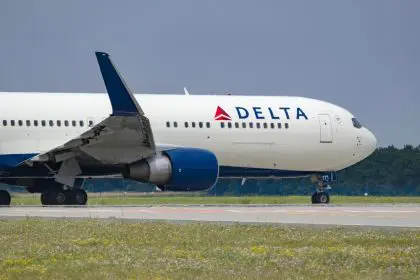The landscape of air travel has evolved significantly, with airlines increasingly enforcing strict policies against disruptive passengers. As more people take to the skies, understanding what leads to permanent bans has become crucial for maintaining safety and order in air travel.
The rise of disruptive behavior
Disruptive behavior remains the leading cause of airline bans, with incidents ranging from verbal altercations to physical confrontations. Airlines report a significant increase in such cases, often resulting in emergency landings and subsequent passenger removal.
Flight attendants regularly encounter passengers who become confrontational or refuse to follow basic instructions. These incidents not only compromise the safety of everyone aboard but also lead to costly flight diversions and delays. Airlines typically respond by immediately blacklisting these individuals to protect their crew members and other passengers.
The impact extends beyond the immediate flight. Disruptive incidents can traumatize fellow passengers, strain crew resources, and create ripple effects throughout the airline’s network. Many carriers now share ban lists, meaning disruptive behavior on one airline could affect a passenger’s ability to fly on others.
Safety protocol violations
The second most common reason for bans stems from passengers refusing to comply with essential safety regulations. Airlines maintain strict protocols governing everything from seatbelt use to electronic device restrictions, particularly during critical flight phases.
Recent years have highlighted the importance of passenger compliance, especially during public health emergencies. While specific health mandates may change, the fundamental requirement to follow safety instructions remains constant. Airlines consistently ban passengers who repeatedly ignore these protocols, viewing such behavior as a direct threat to flight safety.
The aviation industry’s emphasis on safety leaves no room for negotiation when it comes to basic compliance. Modern air travel depends on passengers following established guidelines that protect everyone on board.
Hostile and inappropriate conduct
Airlines take a firm stance against abusive behavior, implementing lifetime bans for passengers who engage in harassment or discriminatory conduct. This category encompasses various offenses, from verbal abuse to inappropriate physical contact.
The industry’s approach reflects a broader commitment to creating an inclusive travel environment. Airlines recognize their responsibility to protect both passengers and crew members from harassment, leading to swift action against offenders.
Modern air travel brings together people from diverse backgrounds in confined spaces. This reality requires clear policies against any form of harassment or discrimination, with airlines prioritizing the creation of a safe, respectful environment for all.
Contraband and prohibited items
Attempts to bring prohibited items aboard aircraft result in immediate security responses and often lead to permanent flying restrictions. The Transportation Security Administration maintains comprehensive guidelines about restricted items, yet some passengers still attempt to circumvent these rules.
The consequences extend beyond airline bans. Passengers caught with prohibited items face potential criminal charges, especially when attempting to transport dangerous materials or illegal substances. Airlines coordinate closely with law enforcement in these cases, viewing such violations as serious security threats.
Security measures continue evolving in response to new threats, making it essential for passengers to stay informed about current restrictions. Airlines maintain zero tolerance for security violations, regardless of whether the breach was intentional.
Security threats and inappropriate jokes
Perhaps the most serious trigger for permanent bans involves security threats or jokes about airline safety. The aviation industry treats all mentions of potential harm with utmost seriousness, regardless of the speaker’s intent.
Even casual remarks about security threats can trigger full emergency responses, resulting in flight cancellations, extensive delays, and significant costs. Airlines coordinate with security agencies to investigate all potential threats, maintaining rigid protocols that prioritize passenger safety above all else.
The consequences of security-related incidents often extend beyond airline bans to include legal action and placement on wider security watch lists. This approach reflects the industry’s commitment to maintaining the highest safety standards in air travel.
Maintaining travel privileges
Successfully navigating air travel requires understanding and respecting the rules that govern this mode of transportation. Airlines continue strengthening their responses to inappropriate behavior, sharing information about banned passengers and coordinating their enforcement efforts.
Passengers who maintain their flying privileges typically share common characteristics: they follow crew instructions, respect fellow travelers, and understand the serious nature of air travel security. This approach benefits everyone by creating a safer, more pleasant travel environment.
As air travel continues to evolve, the fundamental requirements for passenger behavior remain constant. Airlines expect cooperation, respect, and compliance with safety regulations from all travelers, ensuring the skies remain accessible to those who value these principles.
This story was created using AI technology.








